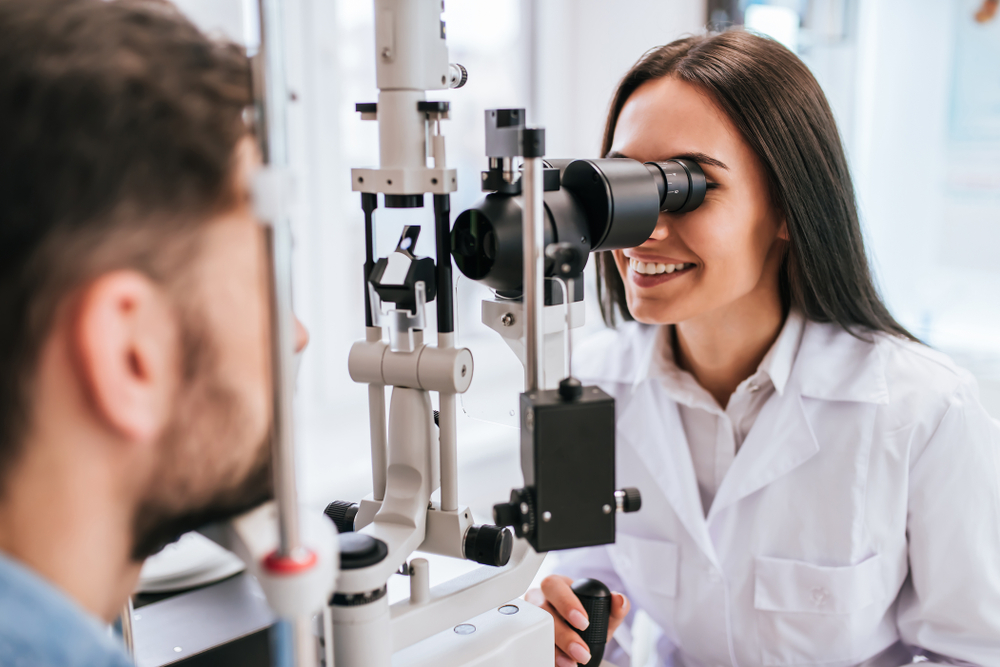A common misconception is; if you aren’t experiencing any symptoms, that there is no reason to go to the doctor for an annual checkup. This is a popular myth relevant to most all of the categories in the medical industry, including eye and vision health. The problem with this myth is that many times the only instances that symptoms start to show up is once the problem has reached a much-worsened state that will be much more difficult to treat. By going to your doctor regularly, you are ensuring that you will be able to catch any health problems in a much earlier state and therefore more likely to successfully treat or cure many problems.
Another misconception is that people often mistakenly associate their eye doctor strictly with their vision and seeing capabilities. There is so much more to eye health than one’s vision and glasses prescription. Many other eye health issues can occur and show no symptoms at all, and it is important to have the appropriate tests done at one’s yearly exam to make sure these other issues aren’t prevalent.
If you are going to your yearly DFW eye exam, your doctor will likely run various tests to make sure your eyes are healthy, these will likely include:
• Your visual acuity
• Your optic nerve and retina
• The blood pressure of your eye
• Cornea health or possible cataract formation
• Eye movement and alignment
• Medical history for other health problems that can affect one’s eye health
• Your peripheral vision
• Signs of unhealthy spots, freckles, or malignant indicators
• Your glasses or contact lens prescription
There are underlying visual conditions and health conditions that need to be considered when it comes to why you should visit your DFW eye center annually, which include the following:
1. Glaucoma does not have any early symptoms
Glaucoma is a very common condition and is responsible for a reprimandable percentage of vision loss and total blindness in the United States. In the earlier stages of Glaucoma, rarely are symptoms present. Often, only once the condition has progressed to an almost irreversible stage, are noticeable symptoms typically present and affecting you prevalently. Seeing your eye doctor regularly will ensure that he or she is able to catch this dangerous condition in the early stages in order to begin treatment and help to prevent permanent damage.
2. You may not realize your vision has been impaired
Many times, we don’t even realize that we need a prescription for glasses or contact lenses or we don’t realize that our existing prescription is not strong enough and needs to be evaluated and changed. It is only once you are at the doctor and he or she tests your eyes that you realize how much more clearly you could be seeing things.
3. Your eyes can tell you a lot about other possible health conditions
The truth is that your eyes can tell you a lot about your overall health. Various dangerous conditions will leave behind traces and cues that are vision related and could save you in the long run. Common diseases that affect vision and can be detected by your eye doctor are diabetes, skin cancer, high cholesterol, high blood pressure, a hormone imbalance or even a brain tumor. If you make your annual exam a priority, your doctor may catch one of these silent conditions and save you in the long run.
If you have questions about your visual health or would like to schedule an appointment with a trusted eye center, don’t hesitate to contact us at First Eye Care DFW today.



